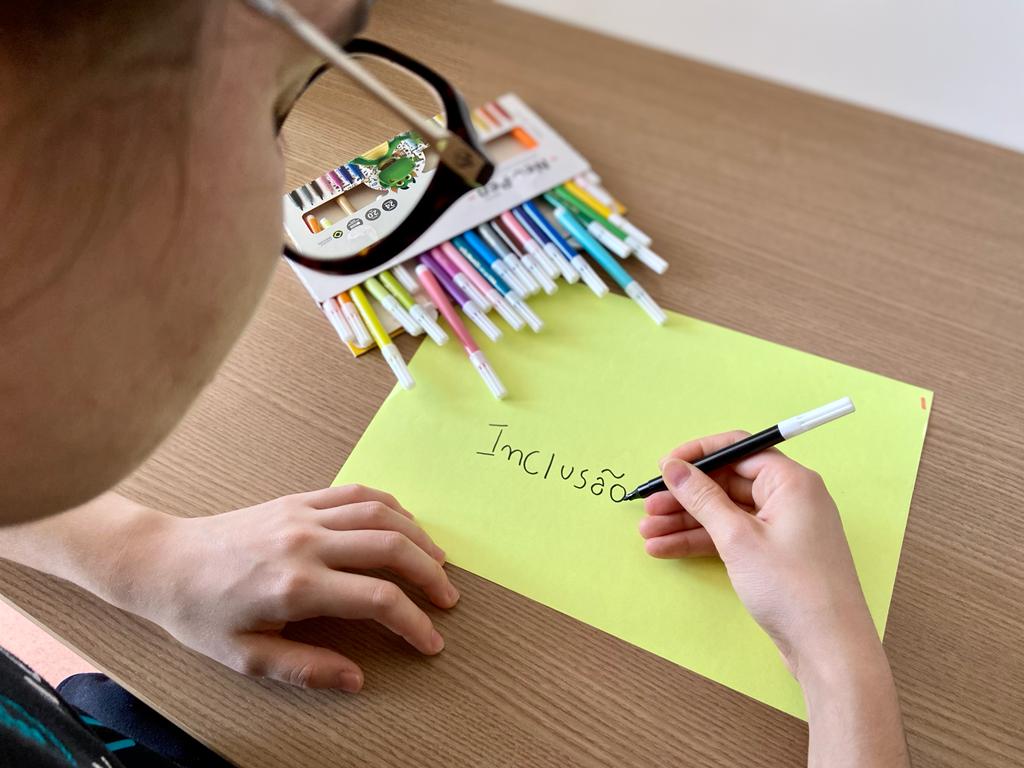The arrival of a new year brings with it the beginning of a new school term. For parents and guardians of students with disabilities, topics such as inclusion measures, teaching adaptation, school activities and educational rights raise concerns. The social worker preceptor at Instituto Santos Dumont (ISD), Alexandra Lima, explains what some of these rights are and how to access them in order to ensure that people with disabilities of school age have access to equal opportunities in this fundamental environment for social inclusion .
The beginning of the inclusion of people with disabilities in school, especially children and adolescents, begins with guaranteeing places and the presence of this public in the educational environment, but is not limited to that. For Alexandra Lima, insertion is just an initial step in what should be a continuous process.
“Inclusion must also include a change in society’s attitude, as the objective is for people with disabilities to be able to carry out their activities under equal conditions in relation to other people”, explains the social worker.
The Federal Constitution, in articles 206 and 208, as well as the Brazilian Inclusion Law, guides an inclusive educational system, which is not limited to the inclusion of people with disabilities in the classroom. The legislation extends to treatment, which must verify and meet all the needs of this group. For this to be achieved, it is necessary to involve the institution's employees, students, teaching materials, resources and structure of the school environment, with the requirement for adaptation and changes in content, approaches and strategies.
Check out some common questions about the rights of people with disabilities in the educational sphere below:
Can schools refuse to enroll a student with a disability?
No. Article 8 of Law 7,853/1989 prohibits any school, public or private, from refusing or charging additional fees for enrolling students with disabilities. Regular education schools must enroll all students, providing the necessary support.
Refusal to enroll a student with a disability is a crime punishable by imprisonment for two to five years, in addition to a fine.
Can the school environment be exactly the same for students with and without disabilities?
Conditions of equality are guiding principles for education, in accordance with Article 206 of the Federal Constitution. Still, educational institutions need to adapt their structures and strategies to accommodate the plurality of students with disabilities.
In this case, 'equality' means providing means, rights and treatments so that people with disabilities have an educational experience and results equivalent to people without disabilities. In addition to the environment, students with disabilities have the right to the presence of a school support professional for their daily activities, offered by the school, if necessary.
Can students with disabilities have different content?
Yes. In addition to the need to remove physical and attitudinal barriers that may cause exclusion and prevent social participation, people with disabilities have the right to adapt activities and the way they perform them.
Article 28 of the Brazilian Inclusion Law determines the need for a pedagogical project that meets the individual needs and characteristics of students. Furthermore, the school must adapt the study material and assessments for students with disabilities, including the content, time to carry out activities and the option to carry them out in a location other than the classroom.
Access and claim
Social worker preceptor Alexandra Lima explains that the request for access to these and other rights is based on a medical report issued to people with disabilities. “In this document, the person’s demands and guidelines for adequate monitoring must be described, including in the area of education”, he points out.
Also according to the professional, in situations where access to the school, support professional, or infrastructure adjustments is denied or made difficult, the family can seek guidance and action from the Child and Adolescent Guardianship Council or the prosecutor's office. that works in defense of education or people with disabilities.
“One of the most important aspects is knowledge. Knowing your rights expands the possibilities of claiming what is guaranteed by law”, adds Alexandra.
Text: Naomi Lamarck / Ascom – ISD
Photograph: Ascom – ISD
Communication Office
comunicacao@isd.org.br
(84) 99416-1880
Santos Dumont Institute (ISD)
It is a Social Organization linked to the Ministry of Education (MEC) and includes the Edmond and Lily Safra International Institute of Neurosciences and the Anita Garibaldi Health Education and Research Center, both in Macaíba. ISD's mission is to promote education for life, forming citizens through integrated teaching, research and extension actions, in addition to contributing to a fairer and more humane transformation of Brazilian social reality.













